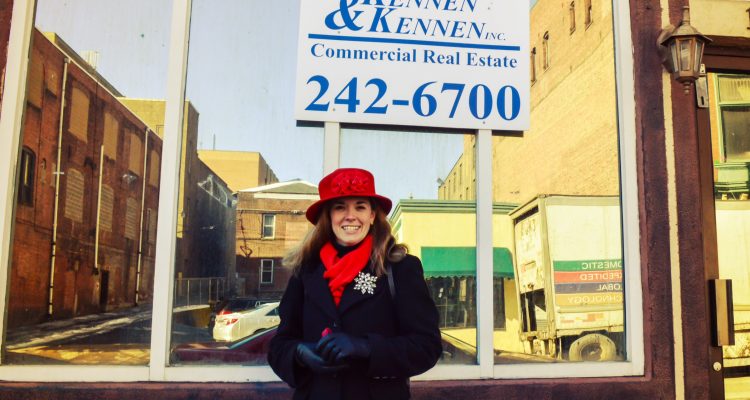By Steve Novotney
Weelunk.com
She doesn’t recall a conversation with her parents about a life in Wheeling following her education, and that’s because there wasn’t one. Her mother and father had watched their friends’ children depart Wheeling for good after graduating from high school.
One after another.
So Missy Adams did the same one year following her graduation from Wheeling Park High School in 1991. She began her college career at West Virginia Northern Community College, and then she chose to transfer to Fairmont State College because it was farther away from Wheeling than West Liberty. Then, after she graduated in 1996, she accepted a teaching position in Charlotte, N.C., and also operated a pair of side businesses — a children’s art studio and a birthday party outfit.
She found a church, and that’s where she discovered her husband, Paul. In fact, their first date was on Sept. 11, 2001, and they joined other church members in an attempt to make sense of the terrorist attack on the homeland.
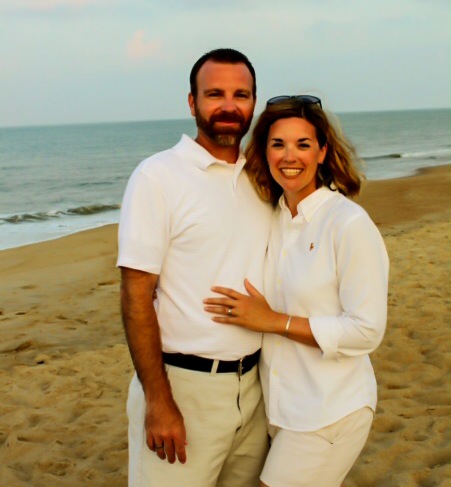
Paul liked Wheeling even though he had a difficult time understanding the community’s collective infatuation with what he referred to as “uncooked” DiCarlo’s Pizza, and the couple found themselves traveling back to the northern panhandle more and more.
And then Adams and Ashmore were married and Paul, who worked as a freelance marketing representative while employed at a Lowe’s, interviewed for a position within the marketing department of the NFL’s Carolina Panthers. And then he interviewed a second time, then a third. After the fourth official conversation with the Panthers organization, he and Missy were certain he’d be hired.
He was not. The professional football team opted instead for the man with the master’s degree. And he was crushed.
On the same day he received the rejection call, Paul also answered the phone when his employer rang. He had submitted a “just-in-case” transfer request to the company’s store in Washington, Pa., and Lowe’s officials approved the desire. In two weeks, the Ashmores had moved to Wheeling.
“That’s how we got home,” Missy Ashmore said. “That’s how we got back to Wheeling. And we moved home the same week of the flood in 2004, and as we were helping people clean up the mess, I was so sick. But I wasn’t sick at all. I was pregnant with Ben.”
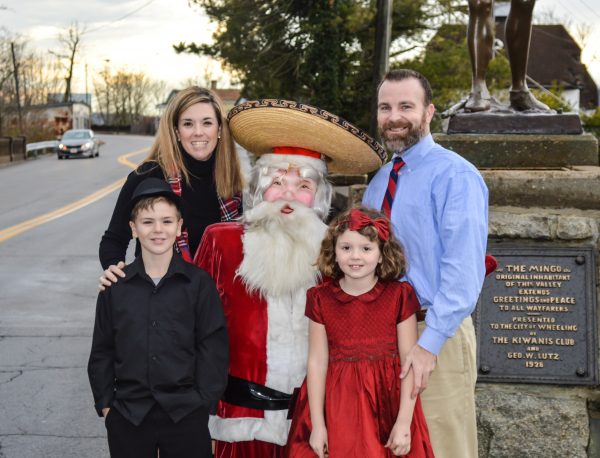
While Paul was commuting to his new position in western Pennsylvania, Missy started working at the Vineyard Church as the director of the children’s programs. Following the birth of Sammie, the couple’s second child, Missy’s mother, Dea Kennen, suggested that she earn her real state license and join the family business.
“I didn’t think I’d be any good at it,” she admitted. “But it turned out that I was, so that’s when I started doing it on a full-time basis. That was our turning point.”
Novotney: Why did selling real estate in Wheeling seem like a good idea once you moved home?
Ashmore: If anyone would have suggested that I sell real estate to make a living, I would have thought you were nuts. But now it’s awesome. So awesome that Paul is in real estate now.
Paul worked at Lowe’s because he liked the people, he liked seeing people every day, and that’s also how we had health insurance.
Novotney: But selling real estate in the Wheeling area is now a good career?
Ashmore: The reality is that there are 150 realtors here who are competing and cooperating. So there are about 150 realtors to sell about 400 houses. Some people are not selling anything at all; some are selling a lot more than others; so you have to hustle every day, or you don’t eat.
And now that we are a straight-commission family, if you don’t get up in the morning and put your big-girl pants on, you’re going to have some skinny kids.
Novotney: As far as the housing crisis here in Wheeling, has it improved in the past few years?
Ashmore: It’s pretty much the same as it has been for a lot of years.
But before, we would see Grandma’s house come on the market and a first-time home buyer could snatch it up for a song. They can’t do that anymore because now families are inheriting Grandma’s house and they are either moving in or they are renting it.
So those houses are not coming back on the market now. Sometimes people move to a warmer climate and they keep their Wheeling house. It’s musical chairs. You have to wait for someone to get up to move into it.
Until we start to create new inventory, the prices are going to keep going up.
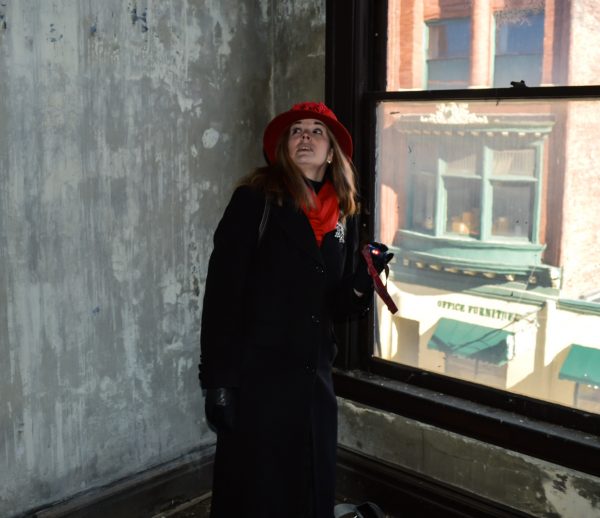
Novotney: Is downtown Wheeling for sale?
Ashmore: Downtown Wheeling is partially for sale. There are some vacant buildings, but they are not all for sale. I think people are trying really hard to turn them into housing or turn them into office space, but there’s little demand for office space right now. It’s cheap right now, and it’s plentiful right now, so there’s not a lot of money to make from office space.
But residential? You can make money off of residential in downtown because that’s where people want to live now.
It’s sort of like the “chicken-or-the-egg” scenario right now. Do you build the condos or the apartments? Or do you build restaurants and convenient stores and small retail shops? What comes first – the food or the people?
Novotney: I believe it’s a proven fact that capitalism follows the people.
Ashmore: It does.
Just look at Centre Market. Today, every one of those storefronts is now full, and the owners are charging good rent, and now people are complaining that they all don’t stay open on Saturday nights. Now the expectation is that they should be open seven days a week because they want it. They want to be there.
If residential improves in the downtown, East Wheeling, South Wheeling, people would buy it.
Novotney: You seem motivated to help reshape the city of Wheeling through the real estate industry.
Ashmore: I just love seeing other people succeed. I like helping people succeed. It’s win-win.
I am not a volunteer. This is my job. This is what I do. This is how I provide for my family. But there are a lot of times when it’s not about the money. It’s the right thing to do, and I show a lot of properties that may never sell. But it’s all part of the bigger picture.
I do sell a lot of houses, but I also love to show the properties in downtown because I want it to be here. I want it to be here for the future, so it’s worth my time to hustle and show those buildings so I can see if I can find a buyer for them.
Novotney: We know what the dream is here in Wheeling, but what’s the reality in your opinion?
Ashmore: I think our reality today is better than it’s ever been in my lifetime. Now that we have jobs and people here, I think the energy we have here now is tangible. We can’t hear the naysayers anymore because so many people are saying that this is where they want to be, and many more are saying that they want to come back.
When we came back, there weren’t many jobs. I had to create my own job, and there are others doing that now, or they’ve been able to bring their jobs with them thanks to their laptops. There are jobs here now.
What would I like to see happen? I would like to see what’s happening in Centre Market spill over into the downtown. I would like to see that connected. I think that’s going to be the next step. Right now, we have pockets of successful areas.
It’s really interesting to see how many people are now interested in East Wheeling again. Maybe it’s just the value involved. They look at the location, and it’s the same distance from their workplace – or maybe even closer if they work in downtown – and then they look at what they can get a house for in that neighborhood.
And I think people want to walk to work. They may not. They may still drive there, but I think they like the idea of being able to if they want to sometimes. People don’t want to be completely car-dependent anymore. Walkable neighborhoods allow a better quality of life. That’s what people want.
Novotney: Why do you believe people are paying what they are paying for properties here in Wheeling, whether they are natives or newcomers?
Ashmore: They are paying what they are paying because they are choosing to live here, and that’s true whether they are expensive parcels near Wheeling Park or the affordable properties in other areas. But they are paying those prices because they have decided to move here for whatever reasons they may have.
For some, it’s all about location. For others, it’s all about value. Some people are choosing beautiful Victorians in East Wheeling because they can get those for $30,000 to $50,000 instead of a Victorian in North Main that they can buy for $115,000. You don’t get the river view, which is awesome, but you can save almost a $100,000.
Novotney: You are involved with several civic-minded organizations like OV Connect. Why?
Ashmore: It’s something I love to encourage people to do. For example, the people with OV Connect realized that when you move back to Wheeling, it’s really hard to make friends. Everyone just hangs out with their families when they first come back because they don’t know anyone else.
I would love to invite someone new over to the house or to take someone who’s new out to dinner because we are the most generous and friendly community, but we need to be intentional about building relationships. We need to reach out to the new people and make them feel welcome, and that’s what OV Connect does.
Novotney: Would you say that’s one of the keys to sustaining the momentum that is present in Wheeling right now?
Ashmore: I think having that sense of community is one of the things that are helping to create that momentum right now. People like to feel like they are from here, this is my family, and if we continue creating that sense of community, the momentum will keep moving us forward.
Even though I am an extrovert, it’s still uncomfortable for me to walk into a room full of people I don’t know. It’s hard for me to talk to people I don’t know. After we moved back, I think it took us two years before we had our own friends. But if everyone would be intentional about reaching out to the people who are not from here, then they will quickly feel as if they are part of the team.
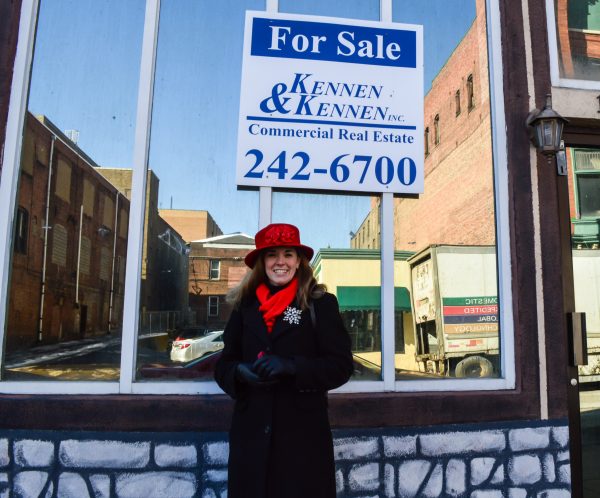
Novotney: Tell me about the Wheeling, W.Va., that you know.
Ashmore: I think the Wheeling, W.Va., that I know is a great place to raise your kids.
We have small-town living, but it doesn’t always feel like a small town. When people come here from the big city where they live, I always joked with them that if they moved here, their clothes would still be in style for two more years.
I like that we are not fast. I like that everybody knows everybody. I like that your kids are safe.
And I also see that we are small enough to change what’s going to happen next. Take the flood insurance issue as an example. You personally brought that up, and because of you doing that, people here started paying attention, and that made many others pay attention, too. You got people talking about it enough that it made waves, and those waves forced change on a national level.
You did that from here, and more change is coming, too, because of you.
That’s a perfect example of how, even though we live here, we have the chance to have a huge impact. You proved to this city that one person can change something very important to our economy and important to economies and real estate markets across the country.
One person can change something that needs changed. I love that we’re this small, but I also love that we can have an impact on very important issues.
Novotney: What’s the next thing that needs to change about Wheeling?
Ashmore: What I would like to see is more residential downtown, and I would like to see our community continue to grow businesses. I don’t want we have now to stop. I want it to continue to grow.
I think the biggest thing that has changed is the perception that people have of Wheeling, and when people are positive about their neighborhood or about the city as a whole, the money follows.
There are people here working so hard to save Wheeling, and they give their money to the effort, too, despite the fact that they are driving used cars. I think that’s amazing. That’s one of my favorite things about my hometown.
Novotney: Will you make efforts to encourage your children to stay here?
Ashmore: My husband and I talk about that all of the time, and I don’t think my parents ever talked to me about that when I was a kid.
I think Wheeling is going to be different in 10 years. I don’t think our kids will feel the need to immediately have to go away like you did and I did. I believe they will have a choice unlike we did.


